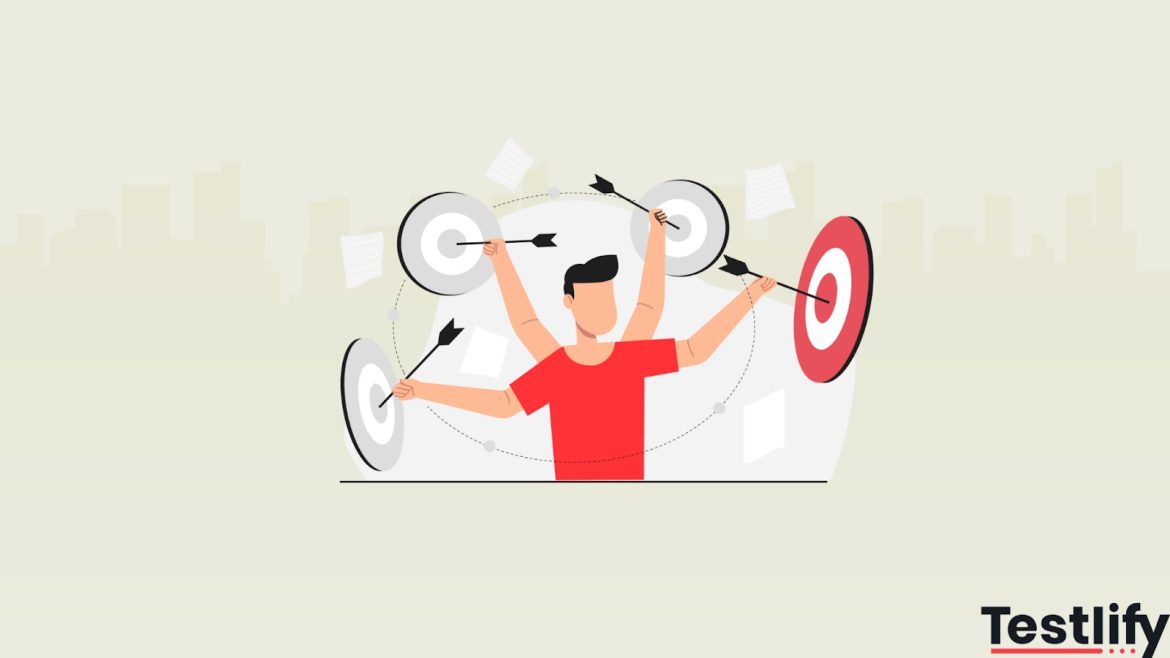Artificial intelligence and robotics can potentially eliminate one-third of U.S. employment by 2030.
Since AI won’t be able to readily imitate “soft skills” like dispute resolution, leadership, reliability, adaptability, and collaboration, these will be even more prized in the future. In addition, companies will require individuals with the capacity to swiftly acquire new skills when new sectors and employment arise as a consequence of technology advancements.
Performing a candidate’s cognitive ability test assists the recruiting managers in getting to the bottom of how well they do with these fundamental skills.
What is the cognitive ability test?
Cognitive ability tests are used to evaluate a person’s level of intellect and capacity to think critically. Recruiters use these assessments to forecast a candidate’s potential to perform essential work duties and develop new competencies.
Cognitive ability measures skills like-
- Problem-solving
- Numerical reasoning
- Reading comprehension
- Spatial reasoning
- Critical thinking
Benefits of cognitive ability test
Predict potential candidates
The cognitive ability assessments foretell a new hire’s performance which is now scientifically proven.
Identify qualified applicants with precise insights from cognitive testing. Again, you can establish a productive workforce by screening applicants according to their mental abilities.
Fits the budget
The recruiters aim to keep costs low. Therefore, computer and internet access are the only requirements for online cognitive tests over a talent assessment platform.
Plus, there is no need for human interaction since the grading is completed mechanically.
Better hire decision
Using a cognitive test throughout the recruiting process, you should expect more success in finding the right candidates.
According to the Department of U.S. Labour, if a hire doesn’t work out, it will cost as much as 30 per cent of the annual wage to start again.
By collecting information on the elements that matter, you can improve your hiring practices and reduce the risk of bringing on board a worker who won’t be a good fit for the position.
Versatile and customizable
Similar to technical skill assessments, they are equally flexible. It is up to you to decide which cognitive talents should be treated as important and which as secondary while conducting an evaluation.
During the hiring process, recruiters can choose from various verified cognitive tools.
Easy to follow the process
It will be much simpler to administer these kinds of tests if they are all done on a computer. On top of that, it will be made public quickly, and the next steps can be taken immediately.
The applicant or the organization will not have to wait for days to determine the outcome. It is a simple process compared to any other assessment.
Discover new talents
A candidate’s abilities cannot be gauged from their resume as they can be manipulated. So to find the best applicants with the right talents, take a test of cognitive abilities.
This is particularly useful for filling entry-level jobs when only a small pool of qualified applicants is available due to a lack of relevant work experience.
And in this process, you might discover a new skill that is not even listed on the CV.
Go beyond educational skills
Cognitive ability tests for employee selection correctly predict how well a candidate would adjust to new settings in work, making them valuable for anticipating job performance.
Your work success is often determined by how rapidly an employee can learn on the job rather than by what they already know.
As a result, the smarter an individual is, the better they will be able to learn new things, adapt to new conditions, and devise inventive solutions to challenging issues.
Avoid bias with the data-driven result
Unconscious bias can be particularly challenging to identify in the hiring process due to its covert nature. Even the most well-meaning professionals might have preconceived views that impact their judgments.
Despite the efforts of many recruiters, this is a problem that persists despite their best efforts to eliminate it.
Improve employer brand
It’s important to select candidates with today’s and tomorrow’s skills. You can safeguard your business’s long-term success by hiring people for their present and future talents.
In addition, including a cognitive test in the employment process can boost an organization’s performance and improve the employer brand.
Reduce Churn
You’ll certainly quit your current employment. But something must be up when a sizable number of employees suddenly quit.
Around 73% of employees cite a lack of cultural fit as to why they left their previous workplace.
Companies that invest in cognitive ability testing have a better chance of retaining talents contributing to the bottom line and avoiding the high turnover rate of hiring people who lack the requisite skills for the job.
Conclusion:
Undoubtedly, the cognitive ability test secures your company’s future in less time with minimum resources.
Testify offers the exact solution you need to bridge the gaps and helps you find out the best match candidates faster, improving the entire team’s productivity.

